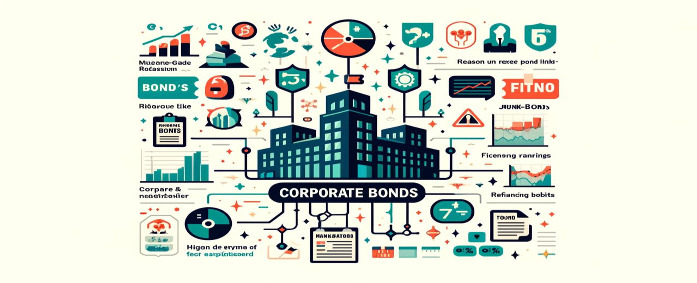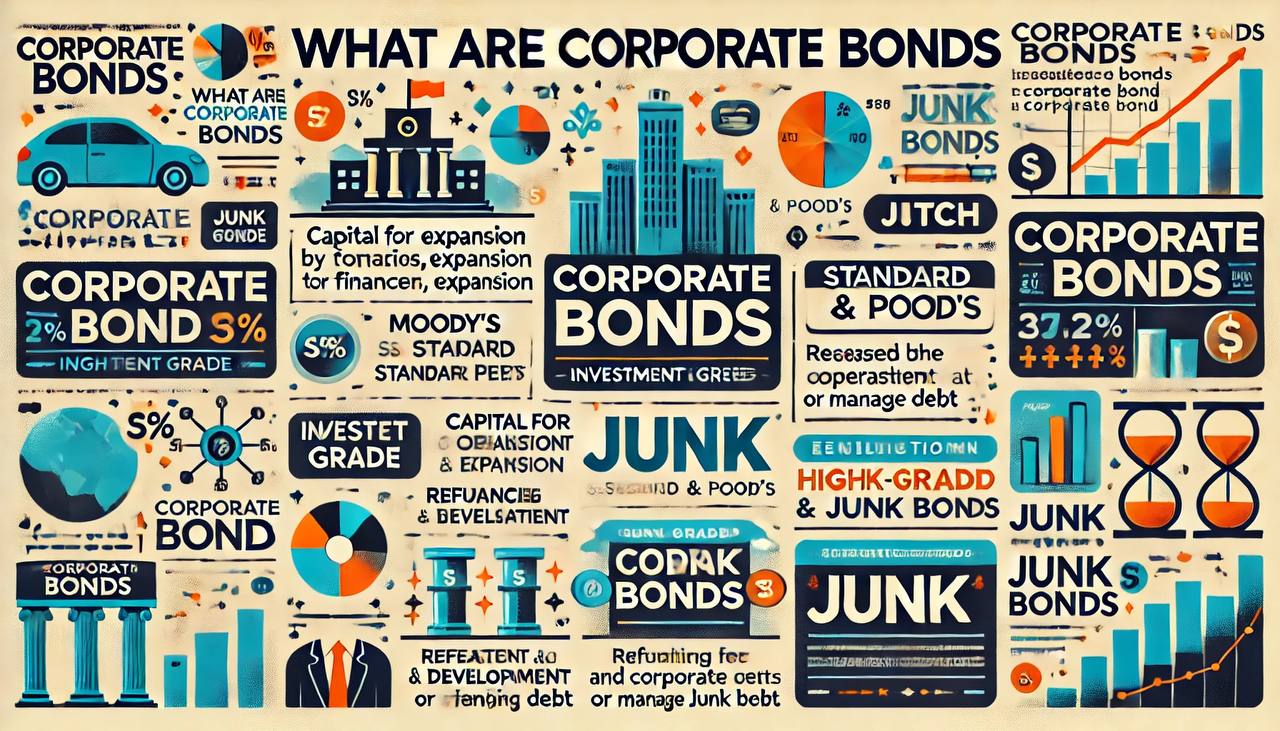
Corporate bonds are debt securities issued by private and public corporations to finance their operations, expand business, or manage existing debts. Unlike government bonds, which are backed by the full faith and credit of a government entity, corporate bonds are backed by the issuing company’s financial health and ability to generate revenue. This makes them a more varied and potentially higher-yielding investment compared to their government-issued counterparts.
Corporate bonds are rated by credit rating agencies such as Moody’s, Standard & Poor’s, and Fitch Ratings, providing investors with an assessment of the issuing company’s creditworthiness. These ratings range from high-grade (investment grade) to low-grade (non-investment grade or junk bonds), reflecting the perceived risk associated with the bond. Interestingly, some top-tier corporate bonds are rated higher than certain government bonds. This can happen when companies demonstrate exceptional financial strength and stability, often exceeding that of some sovereign issuers. For instance, companies with a longstanding history of strong earnings, low debt levels, and robust market positions may receive higher credit ratings than governments facing fiscal instability or economic challenges.
Corporations issue bonds for several reasons. One primary motive is the need for capital to fund expansion projects, research and development, or refinancing existing debt under more favorable terms. Issuing bonds can be a more attractive option than equity financing because it does not dilute current shareholders’ ownership. Additionally, the interest payments on corporate bonds are tax-deductible for the issuing company, further adding to their appeal.
On the lower end of the credit rating spectrum are junk bonds, which offer higher yields to compensate for their higher risk of default. While these can be lucrative investments during periods of economic growth, they carry a significant risk of financial distress for both the issuer and the investor. Companies issuing junk bonds are often in a weaker financial position, making them vulnerable to economic downturns. An increase in default rates among these issuers can lead to financial distress and significant losses for investors.

Junk bonds also play a critical role in financing for companies that may not have access to investment-grade markets. They allow these companies to raise necessary funds, albeit at a higher cost. The market for junk bonds is a crucial component of the corporate finance ecosystem, providing a bridge for transitioning companies towards better credit standings.
The corporate bond market is diverse, offering a range of investment opportunities across industries and risk profiles. During times of low interest rates, investors often turn to corporate bonds for higher yields than those offered by government bonds. However, this shift towards higher-yielding securities must be balanced against the increased risk of default.
The performance of corporate bonds is closely tied to the broader economic environment and specific industry trends. Factors such as changes in interest rates, inflation expectations, and corporate earnings can significantly impact the prices and yields of corporate bonds.